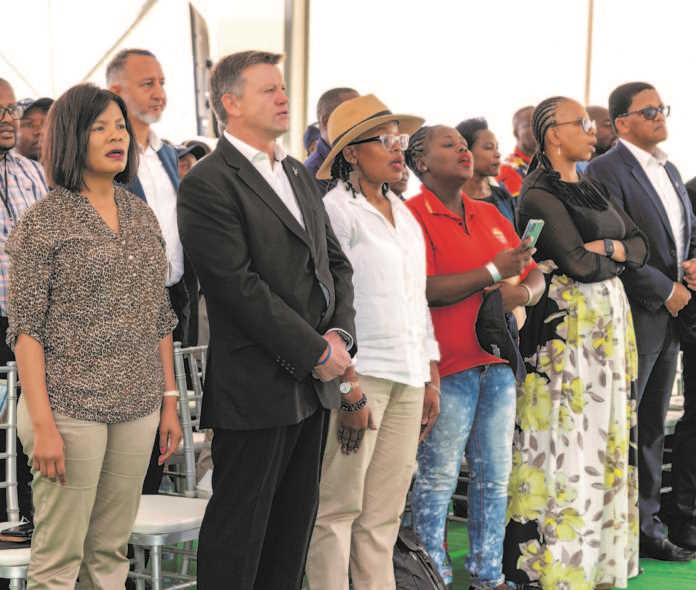
Proactive measures taken by the Implats Group to support the global fight against tuberculosis (TB) have resulted in an annualised TB incidence rate far below that of the national average — at the Impala Rustenburg operations, the incidence rate was 224 per 100 000 people for the 2022 financial year, compared to the estimated incidence rate of 537 per 100 000 in South Africa.
The Implats Group’s successful record in managing TB is due to its integrated approach to managing TB and HIV given that, in southern Africa, the two infections often occur together. All Implats employees, including those at the Impala Rustenburg operations, have an annual occupational health fitness assessment, which includes special investigations, x-rays, audiometry, lung function tests and a medical examination. This helps ensure that any conditions about which our employees may not be aware, are detected, diagnosed and treated early. Impala Rustenburg regularly conducts TB screening, testing and contact tracing for all employees and their dependents, and contractors, and its TB programme is aligned with national guidelines and standards.
Impala Rustenburg’s success in the fight against TB was among the topics discussed at a joint policy-in-action event hosted on 23 March by the South African National AIDS Council (SANAC), in collaboration with Impala Rustenburg, attended by senior leaders from the mining sector, local, provincial and national government departments and organised labour. The focus of the event, to coincide with World TB Day, was on combatting TB in the workplace.
Speaking at the event, Dr Thuthula Balfour, Head of Health for the Minerals Council South Africa, commented on the multi-prong approach taken by the mining industry to reduce the incidence of TB: “We had a very systematic approach to managing TB, which was based on a number of levers. We had to use all those levers to ensure that TB was reduced.”
Dr Balfour outlined the Minerals Council multi-stakeholder initiative — called Masoyise iTB – Let’s Beat TB — for the mining industry, and explained the various levers needed to fight TB. These include reducing HIV prevalence and incidence; reducing the rate of TB co-infection in HIV-positive individuals through rigorous testing and treatment; reducing TB transmission through contact tracing; reducing latent TB prevalence through preventive therapies; reducing active TB through screening and case finding; and finally reducing the silicosis prevalence in the gold mining sector by reducing dust.
Mark Munroe, CE of Impala Rustenburg, said, “The mining industry plays a proactive role in tackling TB in South Africa. Impala Rustenburg’s partnership with the Department of Health and other organisations ensures greater impact and success in the fight against TB and other preventable diseases.”
To extend its community upliftment impact and reduce TB throughout the Bojanala district, Impala Rustenburg has partnered with Tapologo Hospice to fund the training of home-based community care workers, who are trained to identify the early signs and symptoms of TB and other diseases in the mine-host communities.
The policy-in-action event took place at the Freedom Park Clinic, a community clinic recently constructed by Impala Rustenburg and which will soon to be handed over to the Department of Health. This was followed by a tour of the Impala Hospital to showcase the strides Impala has made in the fight against TB, among other diseases.
World TB Day is an opportunity to raise awareness about the disease and to serve as a reminder that, with early detection and treatment, it is curable. In South Africa, the commemorative events are organised by the South African National AIDS Council (SANAC). This year, the events were held in the Bojanala District in the North West Province to highlight the ongoing fight against TB in the country and to showcase the progress made in combatting the disease.











